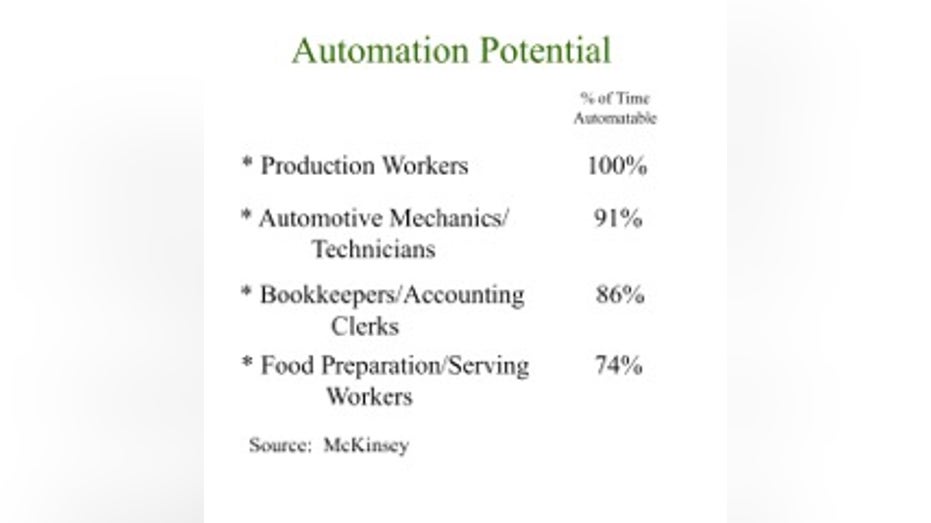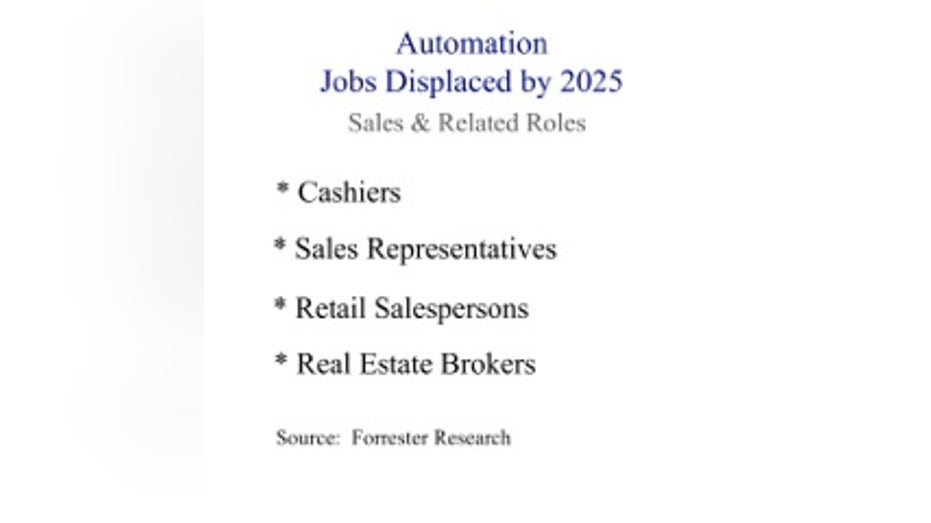Automation is Killing These Jobs

We all love technology. In most cases, it helps make life easier but it also comes at a price. As more jobs become automated, certain occupations will eventually disappear. We have seen it happen before. When was the last time you saw an elevator operator or an encyclopedia salesman? By 2025, it is estimated that automation will displace 22.7 million jobs according to Forrester Research.
“Corporations are worried about two things. Are they going to be under more pressure to reduce costs? This will drive them to look at robotics. They are also worried about getting disrupted by digital alternatives, newer companies that are chipping away at their traditional value chains,” says Craig LeClair, analyst at Forrester Research. To better compete, he says more companies are digitizing and turning to automation.
The good news, LeClair says, is companies are taking it slow to adopt new automation platforms so changes to the labor market will likely be slow and gradual. The bad news, he says, “The jobs with high automated capability are going to be subject to a lot of displacement."
Jobs at Risk
Production jobs, office and administrative occupations are among the jobs that can be easily automated according to analysts at McKinsey. These jobs are less likely to be in demand as software automation and robots perform tasks ranging from data collection and sending email to assembling parts and completing production services. Specific jobs in this group include production workers, automotive mechanics, bookkeepers and food preparation workers.

Customer service jobs are also at risk. Analysts say there will be less need for cashiers, sales representatives in manufacturing, retail salespersons, real estate brokers and other sales-related jobs as kiosks and self-service technology become even more commonplace.

LeClair says automation will not only affect low-wage and low-skill jobs. As automation technology becomes more sophisticated and adopts more human-like abilities to self-learn and think, he says occupations that require college or advanced degrees may also be displaced. This could affect jobs in accounting, finance and data analysis. He says, however, widespread adoption of this technology is still at least 10 years away.
While automation may eliminate the need for certain jobs, analysts expect it will also create new jobs. Forrester expects automation will generate 13.6 million new jobs by 2025, offsetting more than half of the jobs lost to automation. New occupations related to automation and artificial intelligence will likely be a source of job growth. Occupations including software developers, robot engineers and managers who can integrate automation technology into existing business models are expected to be in high demand.
Lose Jobs....Win Jobs
Analysts say other jobs safe from automation include occupations centered around human contact or human interaction. Doctors, nurses, home health aides, massage therapists and athletes are some examples. Creative occupations involving art, design and entertainment are also difficult to replicate by machines and among the least likely to be automated.



















